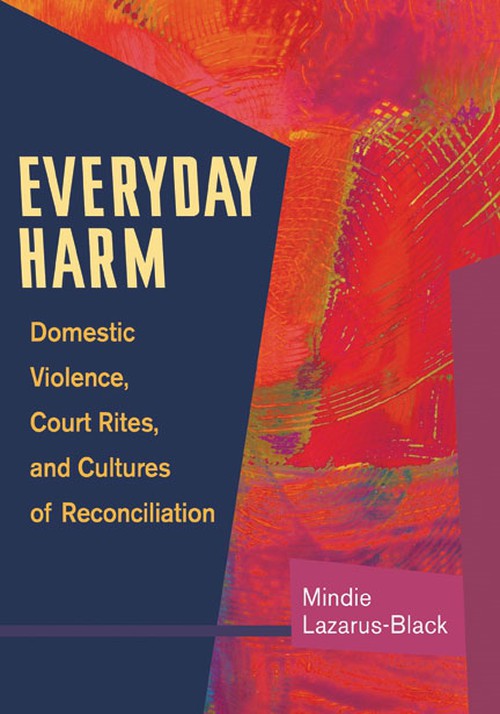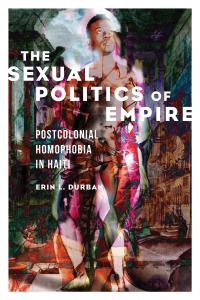
Everyday Harm
Domestic Violence, Court Rites, and Cultures of Reconciliation
Exposing the powerful contradictions between empowering rights and legal rites.
Paper – $32
978-0-252-07408-0
eBook – $19.95
978-0-252-05588-1
Publication Date
Paperback: 01/01/2007
Cloth: 05/21/2007
Cloth: 05/21/2007
About the Book
By investigating the harms routinely experienced by the victims and survivors of domestic violence, both inside and outside of law, Everyday Harm studies the limits of what domestic violence law can--and cannot--accomplish. Combining detailed ethnographic research and theoretical analysis, Mindie Lazarus-Black illustrates the ways persistent cultural norms and ingrained bureaucratic procedures work to unravel laws designed to protect the safety of society’s most vulnerable people.Lazarus-Black’s fieldwork in Trinidad traces a story with global implications about why and when people gain the right to ask the court for protection from violence, and what happens when they pursue those rights in court. Why is itthat, in spite of laws designed to empower subordinated people, so little results from that legislation? What happens in and around courts that makes it so difficult for people to obtain their legally available rights and protections? In the case of domestic violence law, what can such legislation mean for women’s empowerment, gender equity, and protection? How do cultural norms and practices intercept the law?
About the Author
Mindie Lazarus-Black is a professor in the Department of Criminal Justice and associate professor of anthropology at the University of Illinois at Chicago. She is the author of Legitimate Acts and Illegal Encounters: Law and Society in Antigua and Barbuda and other works.Reviews
"This book is an important contribution to studies that show how law can both reproduce hegemony while simultaneously providing an avenue to contest that hegemony. This book is also a welcome addition to studies of law and legal processes in the global South."--Contemporary Sociology"What a tour de force of a book. . . . Data about one intensively studied court in Trinidad supplement and reconstruct our knowledge about courts of all kinds elsewhere, and the position of low status litigants within them. If this were not feat enough, our 'grand' theoretical understandings of the way law works are also challenged. So do go away and read this book."--Howard Journal of Criminal Justice
"[Lazarus-Black] goes beyond previous studies by synthesizing multiple factors into a model to explain how societies discourage victims of domestic violence from pursuing their legal rights. . . . This well-done study would be useful to activists as well as academics seeking to understand the obstacles faced by those prosecuting cases of domestic violence."--NWSA Journal










